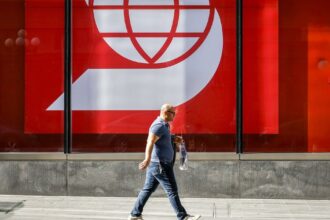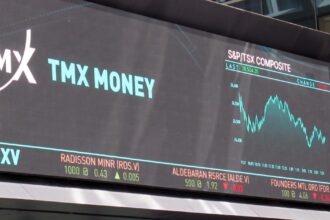The economic chess match between former President Donald Trump’s proposed tariff policies and the Federal Reserve’s monetary strategy is intensifying as Fed Chairman Jerome Powell acknowledged that sweeping tariffs would likely force the central bank to reconsider its interest rate approach.
“If we were to have broad-based tariffs on all imports, that would clearly lead to higher prices,” Powell stated during his testimony before the Senate Banking Committee on Tuesday. His comments mark the first direct acknowledgment from the Fed that Trump’s campaign promises of imposing 10-20% tariffs on all imports could significantly alter the nation’s monetary policy landscape.
The warning comes at a critical juncture as the Federal Reserve navigates post-pandemic inflation pressures. Powell explained that substantial tariffs would create a complex economic equation: “Higher tariffs would likely push inflation higher, potentially slowing our progress and complicating our work.”
Market analysts at Goldman Sachs project that a 10% universal tariff could add approximately 1.3 percentage points to core inflation—a substantial increase that would undermine the Fed’s recent progress in bringing inflation closer to its 2% target. Current inflation sits at 3.3%, down significantly from its 9.1% peak in June 2022 but still above the Fed’s goal.
The economic ripple effects would extend beyond consumer prices. “We’d have to take that into account in our policy,” Powell noted, suggesting that tariffs could delay or reverse the interest rate cuts many economists anticipate later this year. For everyday Americans, this translates to potentially higher costs for mortgages, auto loans, and credit card debt.
Trump’s campaign has doubled down on tariffs as a centerpiece economic policy, framing them as leverage in international trade negotiations and a mechanism to protect American manufacturing. The former president previously described himself as a “Tariff Man” during his administration, implementing significant duties on Chinese goods that economists widely agree contributed to higher consumer prices.
Powell’s testimony highlights the delicate balance the Fed must maintain between political independence and economic reality. While carefully avoiding direct criticism of any candidate’s policies, he made clear that substantial tariffs would create significant monetary policy challenges.
“Our job is to achieve maximum employment and price stability regardless of the fiscal and trade policies that are in place,” Powell emphasized, underscoring the Fed’s commitment to its dual mandate despite potential political crosscurrents.
For investors and business leaders preparing for the November election, Powell’s comments serve as a stark reminder that campaign promises carry real economic consequences. The interplay between fiscal and monetary policy has rarely been more consequential, with inflation control hanging in the balance.
As Americans weigh their electoral choices, the economic implications of tariff policies may soon extend far beyond abstract debates to tangible impacts on household budgets and business planning. Will voters prioritize the potential protective effects of tariffs on domestic industries, or will concerns about rising prices prove more compelling? The answer could shape economic policy for years to come.























